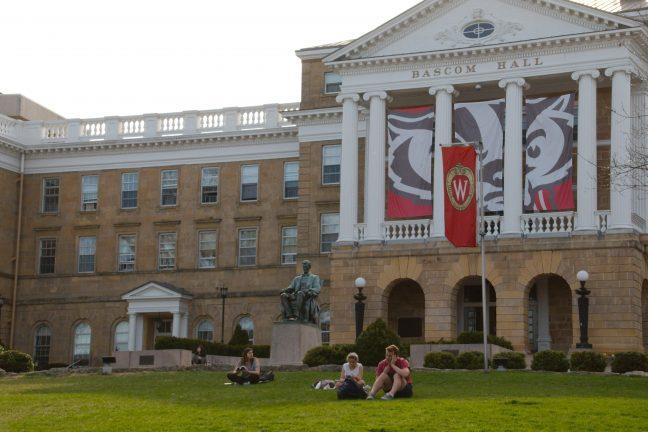The International Student Services held a virtual town hall Wednesday to explain their current interpretation of how U.S. Immigration and Customs Enforcement’s changes to the Student and Exchange Visitor Program will affect international student’s visas.
ICE released new SEVP guidelines Monday that prevent nonimmigrant F-1 and M-1 visa students from staying in the U.S. if their course load is fully online. ISS held a virtual town hall for campus partners to explain what qualifications students must meet to legally stay in the U.S. during the fall semester.
Interim ISS Director Samantha McCabe said Designated School Officials in the ISS office must update all international student immigration records before August 4 to confirm students are enrolled in at least one class that meets in-person. The University of Wisconsin is following a hybrid plan in the fall where some classes will meet in-person and some will be online, depending on their size.
McCabe said the SEVP does not list a minimum in-person credit requirement for students, which ISS interpreted as only one credit is necessary for students to stay in the U.S. Current F-1 students should enroll as full-time students, as should new F-1 students, who are currently in the U.S., McCabe said.
New F-1 students may enroll part-time or full-time in online or remote courses, McCabe said. Since they have not entered the U.S. yet, they do not have an established immigration status and will need to defer their I-20 program start date to whenever they are able to enter the U.S. for in-person classes, McCabe said.
F-1 students must update their residential address within 10 days, McCabe said, and students wishing to stay on campus for in-person classes should have a Madison-area address.
McCabe said ISS is also tracking travel conditions during this time. Many U.S. embassies and consulates are closed due to the pandemic, which may make obtaining a visa harder, McCabe said. Additionally, there are many travel restrictions to and from the U.S., so ISS recommends checking the CDC website for up-to-date international travel information.
Students in the U.S. who are immunocompromised can request a medically reduced course load, but they will need a signed note from a U.S. medical doctor, McCabe said.
Assistant Director of International Student Engagement Sharece Bunn said students taking an in-person class will not have to leave the country after Thanksgiving when UW switches to online-only instruction for the rest of the semester. Because the change is a part of UW’s official hybrid teaching plan, it is different from an emergency switch to online instruction, Bunn said.
If the university does switch to online learning because of rising COVID-19 cases, students will not be able to stay in the U.S. under the new rules.
“We do not interpret [transitioning to online after Thanksgiving] to be a mid-semester change,” Bunn said. “The mid-semester change is kind of what happened in spring semester where we were fully in-person and then suddenly everything is online. Our stand is that students should not have to return home after this holiday break.”
Because of travel barriers and complications as a result of the pandemic, Bunn said students should travel with proof of enrollment and with their new I-20, which will be updated by August 4. ISS can also provide F-1 students with a letter stating what the student is enrolled in to provide to Customs and Border Patrol agents, McCabe said.
Bunn said the fall enrollment deadline to get a new I-20 form is July 20, and students should make sure they are enrolled in a full course load by this date to receive a new I-20 by August 4.


